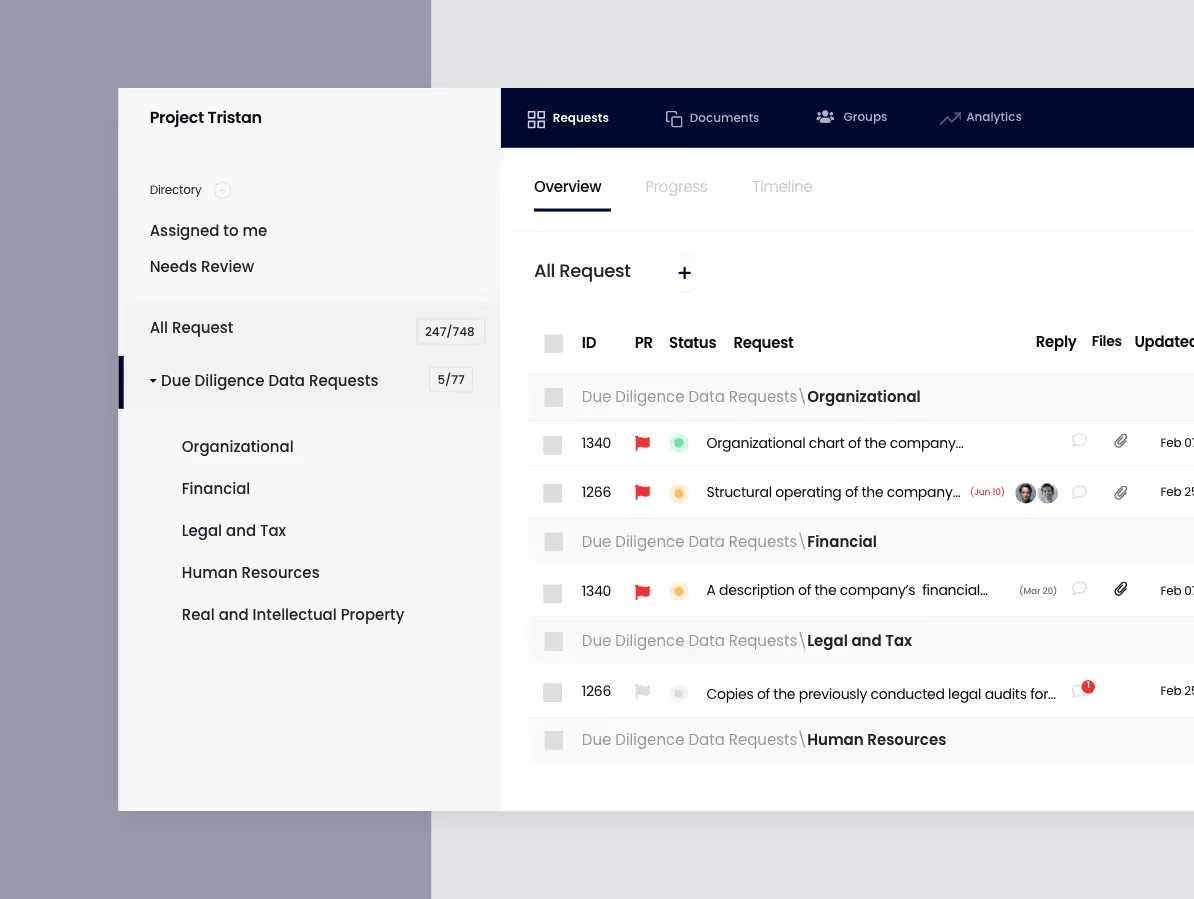Nonprofit Merger Due Diligence Playbook
Merging two nonprofits can be a mutually-beneficial way to expand services and solve operating issues. However, conducting the right due diligence before entering into the process is key. Don’t leave any stone unturned with our nonprofit merger diligence template. Book a playbook demo to explore — schedule a call with us and we will reach out to help you get started.
- Mission-driven merger review
Tailored for non-profits and charities, this checklist guides you through governance, tax-exempt status, fundraising obligations and service-delivery continuity to protect mission value. - Donor-fund and regulatory alignment
Review Form 990s, state registrations, i.e., “good standing” certificates, and program service margins so no surprises emerge in the merge. Nonprofit Law Blog+1 - Operational & cultural compatibility
Analyze overlapping back-office systems, program structures and leadership alignment to ensure the combined entity functions cohesively and strengthens impact. - Audit-friendly documentation trail
Link policies, board minutes, contracts and historical program data directly to checklist items—so volunteer boards, funders and regulators see full transparency.
After completing your non-profit review, reference the Hedge Fund Investment Due Diligence Checklist for alternative investment diligence, or deepen your ESG and impact view with the ESG Due Diligence Playbook.





.png)
.png)
.png)
.svg)

.svg)
.avif)
